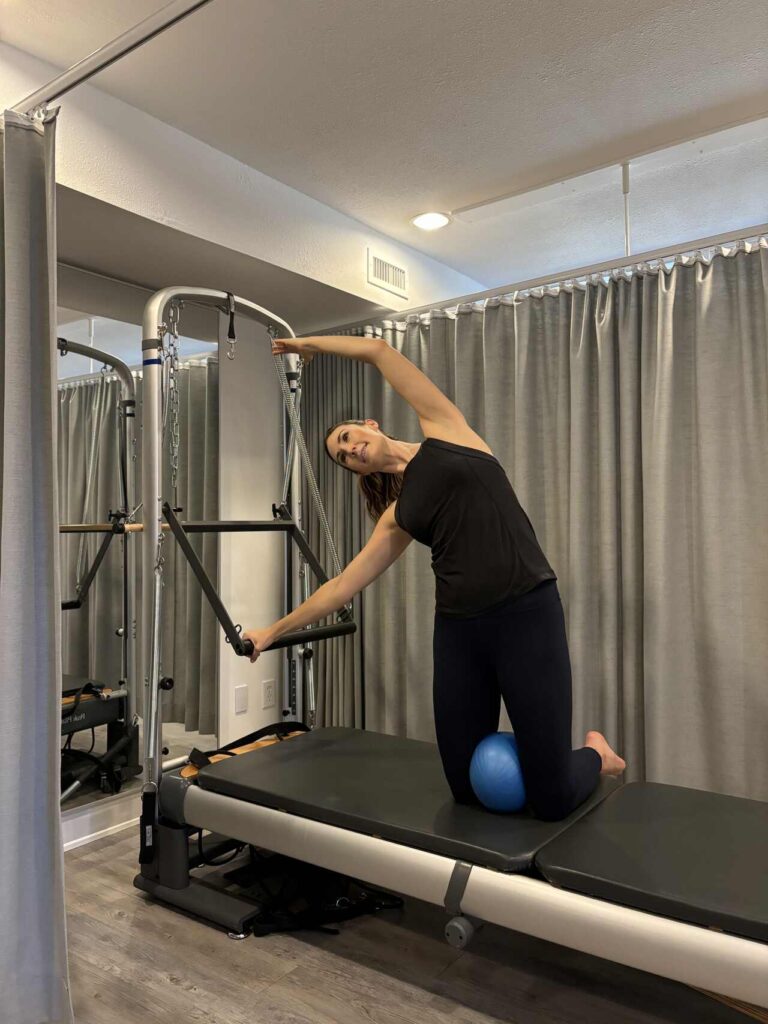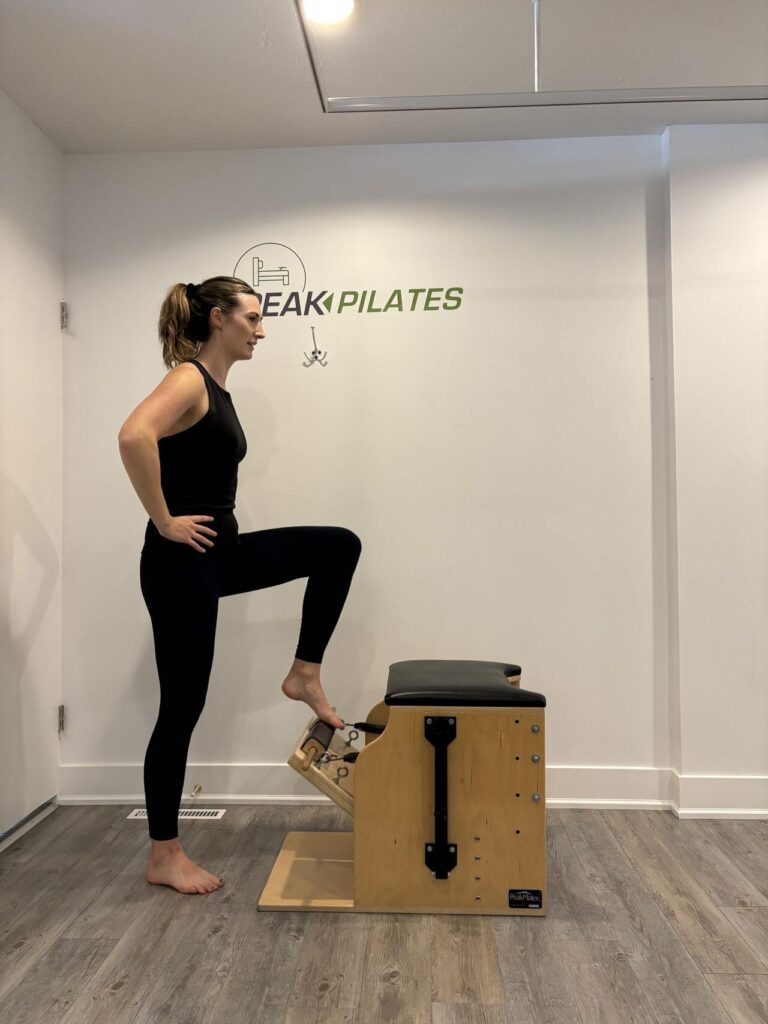Written By Physiotherapist and Clinical Pilates Provider Janelle Juss
Pilates is becoming increasingly popular despite being around for over 100 years! The creator, Joe Pilates, was inspired to strengthen both the mind and body, drawing from yoga, martial arts, and Greek and Roman exercise principles. This Classical Pilates repertoire of exercises is still taught to this day.
What Is “Clinical Pilates” vs “Pilates”? 
Pilates is typically taught in a group setting, going through general exercises. Clinical Pilates are one on one sessions, which allow each session to be tailored to specific restrictions and limitations, but also specific goals. By having the session be led by your Physiotherapist you can feel confident you are doing the exercises correctly, effectively and safely. The attention to detail and individualized approach can allow you to get more out of your sessions.
Clinical Pilates appointments are spent moving and exercising through the majority of the session, but the option for some manual therapy that you may be used to having with your Physiotherapist is also available to finish off your appointment.
During an appointment, we can utilize our Pilates equipment, the Tower, Reformer and Wunda Chair. The equipment is designed to provide resistance in some exercises, and assistance and support in others. Teaching your body to experience new exercises with novel equipment can be an engaging way to exercise and challenge yourself. With the physiotherapist’s guidance, you can work together to find where your strengths and possible weaknesses are.
Clinical Pilates can be billed as Physiotherapy through benefits or personal insurance plans.
Benefits of Clinical Pilates:
- Improves Stability
- Strengthens Core Muscles
- Rehabilitation After Injury
- Corrects Posture
- Reduces Neck and Back Pain
- Improves Flexibility
- Tones Muscles
Common Conditions and Injuries Treated With Clinical Pilates
- Low back pain: Through improving control of your range of motion of your spine and it’s range of motion. Increasing core control and support from the hips and legs are beneficial as well.
- Tension Headaches: Improving neck and shoulder strength and control through exercise can build resilience in those muscles which can be helpful for decreasing the frequency of headaches. Increasing upper back mobility can also be beneficial.
- Hypermobility: When you have a lot of flexibility, gaining control of your full range of motion through muscle strength is even more important. The use of the equipment can provide feedback to your muscles which can help you learn to control your flexibility.
- Postpartum Recovery: General body strengthening postpartum, but often with a focus on regaining core and pelvic control.
- Chronic Pain or Post Car Accident: Exposing yourself to exercise gradually, with the support and guidance of the Physiotherapist, can be a safe way to start reconnecting with your body. Learning to trust and gradually challenge it again.
- Post Ankle Sprain or Fracture: Learning how to connect with your foot again and coordinate with the whole body. Focusing on increasing your range of motion, balance and strength.
Who Is Clinical Pilates Good For?
- New to exercising and not sure where to start.
- Seeking a low impact exercise option.
- Have an area of chronic tightness or pain.
- Crossing training for any sport and looking for a challenge.
- Excellent for dancers, yogis, gymnasts and hypermobile people.
- Prefers 1:1 attention and support when learning exercises to make sure it’s being done correctly and is appropriate for you specifically.
- Age: 13 years old is typically the earliest age that we see this intervention being helpful for, however, there are some exceptions. There is no age limit!
- No pain, or obvious issues and are looking for a way to continue feeling good, and maybe find areas they could focus on as preventative care.
Final Words
Clinical Pilates can take your physiotherapy experience to the next level, and help you progress your rehab, strength, and overall fitness. If you are curious about Clinical Pilates, book in for a free discovery call to learn what the best treatment option might be for you! To get started with your Clinical Pilates journey, book HERE.

